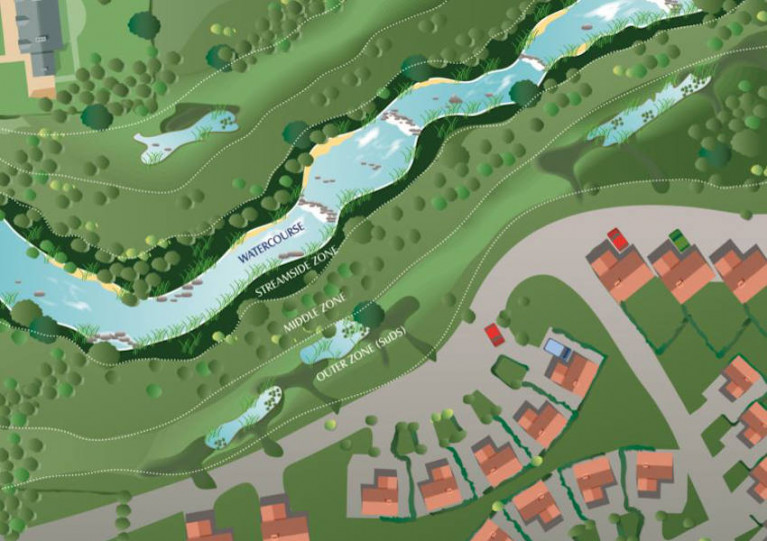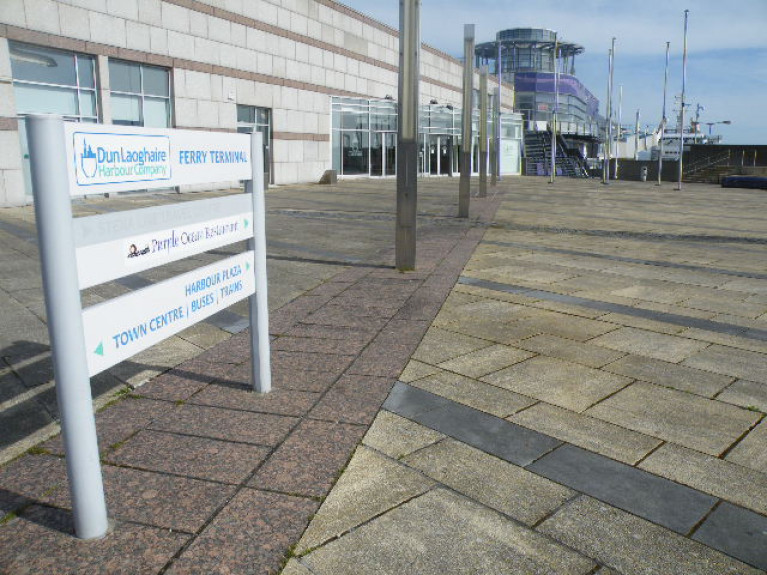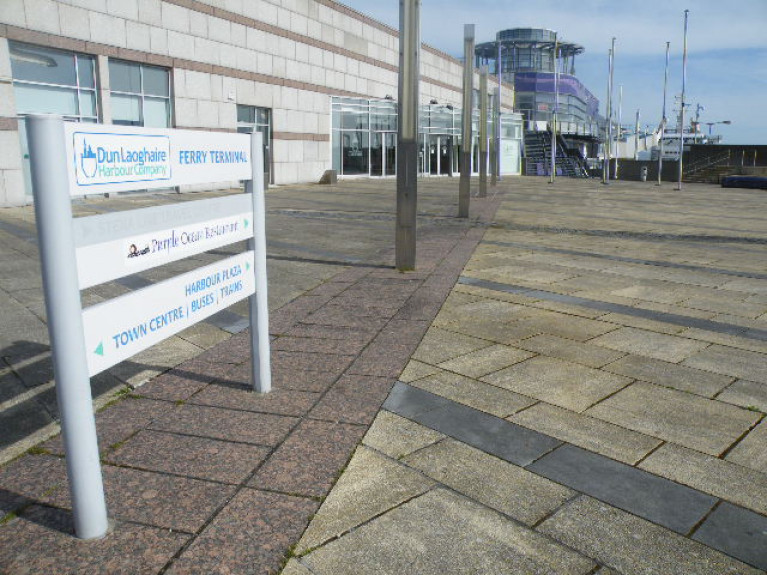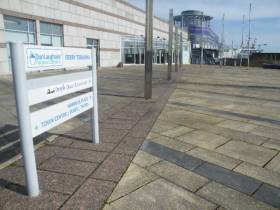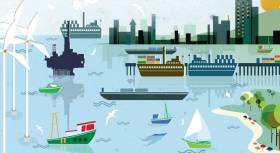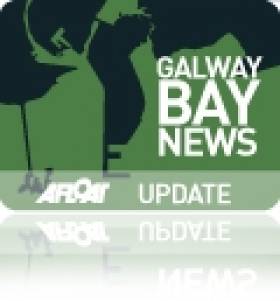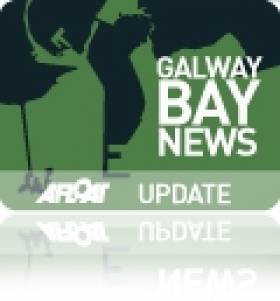Displaying items by tag: planning
Inland Fisheries Ireland Updates ‘Planning for Watercourses in the Urban Environment’ Guidelines
Inland Fisheries Ireland (IFI) has launched an update of its guideline document ‘Planning for Watercourses in the Urban Environment’.
It outlines an integrated watercourse protection strategy that has been developed by IFI through consultation with a wide range of experts in the area.
Watercourses including rivers, lakes and streams are an integral part of our environment — and if managed appropriately can significantly improve the quality of life for people living in urban areas, IFI says.
The strategy adopts a ‘four-step’ approach to watercourse protection planning which should not only protect watercourses and their associated riverside zones in urban areas, but also provide other benefits important for the wellbeing of people living nearby.
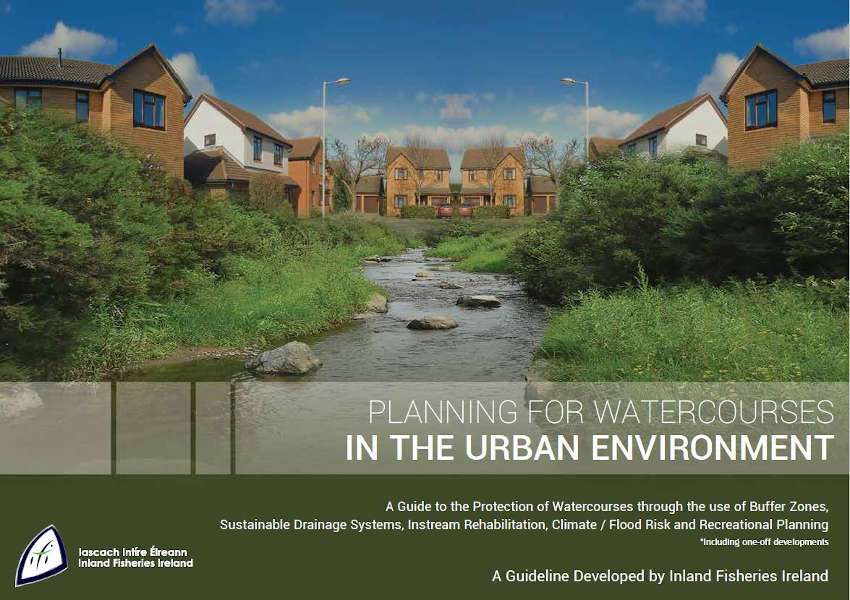
IFI chief executive Francis O’Donnell emphasises that both “nature-based catchment management” and “a holistic approach to addressing our biodiversity and climate challenges” are crucial for sustainable development going forward.
“These updated guidelines approach the issue of planning for watercourses in urban environments from a multi-stakeholder perspective and seek to maximise the significant co-benefits that will arise from adoption of a comprehensive, all-inclusive strategy,” he says.
“These benefits range from better water quality and more resilient and natural ecosystems to the well-established positive effects of nature and green areas for community wellbeing, recreation, health and recovery from serious illness and even reduced levels of antisocial behaviour.
“We hope these guidelines will be a useful resource for all of Irish society.”
Dun Laoghaire Ferry Terminal Plans ‘Could Be Trojan Horse For Unsuitable Development’
Dun Laoghaire Harbour is on the verge of an investment and development boom — but the unknown provenance of one investor in a key waterfront asset gives pause for thought, writes local resident Paddy Shanahan.
Lapetus Investments Ltd has submitted a planning application to take control of the former Stena ferry terminal by way of a 15-year lease which Dun Laoghaire-Rathdown County Council will be voting either for or against on Monday (10 February).
The investor has also applied to change the ground floor restaurant, in plans for a mixed-use co-working space agreed last year, to a food court — a move backed by at least one local stakeholder.
Readers will be aware that several hundred different stakeholders have agitated for Dun Laoghaire Harbour to be developed as a marine sports campus. And the Council Executive have recently agreed that a marine sports campus is the future for Dun Laoghaire Harbour.
Opening the harbour to the general public paves the way to regeneration of the town centre and an investment thesis that will open up many opportunities bringing in many investors.
Less than two weeks ago, €400,000 was secured from the Government for a feasibility study on the marine campus project; the follow-on investment would be many millions and a boon to Dun Laoghaire.
The terminal building is the jewel in the crown and will be at the centre of proposed marine sports-related initiatives and/or businesses.
However, Lapetus Investments are unknown, and provide no information about themselves only that they wish to build an innovation hub. That should be unacceptable to elected councillors.
The terminal building is the jewel in the crown, and will be at the centre of proposed marine sports-related initiatives and/or businesses
Any development in the harbour and its historical and protected assets should require full disclosure and prior discussion. Anything less is a disservice.
Extremely worrying, and a major red flag, is their application to remove condition number two of the previously granted planning permission, which was placed to ensure the development remains compatible with the Dun Laoghaire-Rathdown County Development Plan 2016-2022.
From the DLRCoCo documentation, the condition states: “This permission shall be for a period of 10 years from the date of the final grant of permission. Four years from the final decision date, the Applicant shall submit a full review/monitoring report, together with floor plans, in respect of the permitted use detailing the overall use and corresponding floor area, demonstrating that the development remains consistent with the particulars of this permission.
“At the end of the 10-year period, the use of the building shall cease unless, permission for its continuance and/or change of use (as required) has been granted by the Planning Authority or An Bord Pleanála on appeal.”
A technology hub is worthy of serious consideration. However, under the terms of their application they wish approval for, Lapetus could use the proposed tech hub as a Trojan horse for other development which goes against all principles of what we, the council and many others are fighting for.
Their application precedes the grant of the feasibility study funds. As such, any vote needs to take place only after the feasibility study is complete and more is known about Lapetus.
Any councillor who votes for granting this lease will be doing so against the wishes of a great many residents of Dun Laoghaire-Rathdown.
All stakeholders in the harbour should remain vigilant on this issue, and I urge all who would agree to pass their concern on to DLRCoCo councillors and urge them to vote against the application until all the facts are clear and the study is complete.
Sailing School Shows Support For Dun Laoghaire Harbour Food Court Plans
Proposals for a ‘food court’ at Dun Laoghaire Harbour’s currently vacant ferry terminal have been welcomed by one leading local stakeholder.
In a written submission seen by Afloat.ie, Alistair Rumball of the Irish National Sailing & Powerboat School supports the new plans as “the harbour area badly needs year-round footfall, employment, visitors and economic activity, that this change of use both facilitates and drives”.
As reported last month on Afloat.ie, the change is being sought on behalf of Lapetus Investments Ltd to replace the proposed ground floor restaurant and drink vending elements of planning permission approved last year for a mixed-used co-working development at the St Michael’s Pier site.
Rumball adds that, from the standpoint of his more than 40 years of experience in the marine industry, he believes this change of use “will not impinge on the use of berths alongside the former ferry terminal building for commercial vessels, nor restrict a future ferry service”.
The final date for observations on this planning application is this coming Monday 20 January.
Planning permission is being sought to convert the ground floor of Dun Laoghaire’s ferry terminal building into a ‘food court’.
A site notice posted Tuesday 3 December on behalf of Lapetus Investments Ltd announces the intention to replace the proposed ground floor restaurant and food and drink vending elements of planning permission approved last year for a mixed-use co-working development at the St Michael’s Pier site.
Dun Laoghaire-Rathdown County Council has confirmed that there are no charges to view current planning applications that are online or if you visit County Hall on Marine Road.
A submission or observation may be made in writing to the planning authority on payment of a fee of €20 within five weeks of receipt of the application by the authority.
Update: A previous version of this article stated that the planning application may be inspected or purchased “for a fee not exceeding a reasonable cost of making a copy” at the offices of Dun Laoughaire-Rathdown County Council’s planning department during public hours (weekdays 10am to 4pm). This has since been corrected by DLRCoCo.
Planning Permission Sought For Bus Depot In Dun Laoghaire Harbour
#DunLaoghaire - Planning permission is being sought to park as many as 20 buses overnight for up to seven years at the former Stena HSS vehicle compound in Dun Laoghaire Harbour.
Details of the application on Dun Laoghaire Rathdown County Council’s planning website indicate that a change of use is also sought to employ the existing freight ticket office as staff facilities for Go-Ahead Transport Services, with no alterations proposed.
Observations can be made on this application up until Monday 5 February.
Ireland's Maritime Spatial Planning Consultation Underway
Maritime spatial planning for Ireland takes a step closer this year thanks to an EU directive first adopted in 2014. The directive obliges all coastal Member States to establish maritime spatial plans by 2021. Member States, including Ireland, must transpose the Directive into national law by 18th September 2016. The Goverment is seeking submissions but the deadline is less than a month away.
Maritime Spatial Planning (MSP) is a new way of looking at how we use the marine area and planning how best to use it into the future. Marine industry activists have long argued the lack of ability to licence the oceans that surround us has been the biggest obstable to developing the 'blue economy' for Ireland.
MSP will try to balance the different demands for using the sea including the need to protect the marine environment. It's about planning when and where human activities take place at sea. It’s about ensuring these activities are as efficient and sustainable as possible. Maritime spatial planning involves stakeholders in a transparent way in the planning of maritime activities.
The Department of the Environment, Community and Local Government has drafted regulations intended for Irish law and it is inviting submissions on the draft regulations. To assist the Dept has prepared a guidance document showing the relationship between the articles of the Directive and the regulations. More details here
The closing date for submissions is 5.30pm on Friday, 6 May 2016
Draft regulations are attached below
Meanwhile, the sixth conference of the MSP stakeholder series, focusing on MSP Worldwide has been postponed. The conference is now confirmed to be held on 23 - 24 June 2016 at the University of the Azores, Ponta Delgada, Azores.
According to the organisers, the conference will present experiences, opportunities and challenges of MSP implementation around the world. In particular it will look at how MSP can advance Blue Growth world-wide, its potential to promote climate change solutions, as well as at the role of area-based management regimes in international waters. The main purpose is to take stock of what is being done at international level and identify potential synergies as well as possible contributions from European MSP processes.
Galway Port Expansion Verdict Delayed Again
#GalwayPort - Planners' verdict on multi-million euro expansion plans for Galway Harbour have been postponed for another four weeks, according to Galway Bay FM.
As previously reported on Afloat.ie, the planning appeals board has gone back and forth on the €126 million docks redevelopment scheme since January's oral hearing, and was originally set to announce its decision yesterday (Friday 11 September).
However, that date has now been revised by An Bord Pleanála to Friday 9 October, the latest postponment for a decision previously expected in early August, and before that in early summer.
Galway In Talks to Attract Cruise Liners
World tourism bosses and cruise line operators will be headed to Galway next month for high-powered talks aimed at transforming the city into a global destination port.
The Connacht Sentinel reports that execuives from Fáilte Ireland, the Galway Harbour Company and Galway Chamber of Commerce will meet a delegation that will include Jamaica's head of tourism and some of the world's largest cruise line operators to discuss attracting business to the redeveloped port.
As previously reported on Afloat.ie, the proposed €200 million redevelopment of Galway Harbour - which will increase berthing space to accommodate cruise ships - has received approval to submit a planning application to An Bord Pleanála.
Galway West Deputy Brian Walsh, who helped push forward the development plan and will also meet the delegation at the end of September, said that the Galway Harbour Company has set a target of 50 cruise ships a year - which could bring in an extra €40 million annually to the local economy.
The Connacht Sentinel has more on the story HERE.
As reported previously on Afloat.ie, the Galway Harbour Company's €200 million scheme involves moving the port south onto 24 hectares of reclaimed land in deeper water to accommodate cruise liners, as well as a proposed rail link and marina expansion.
Following the public consultation earlier this year and subsequent discussions with An Bord Pleanála, the scheme has been deemed a 'strategic infrastructure development' and a planning application under this designation is expected to be lodged this month.



























